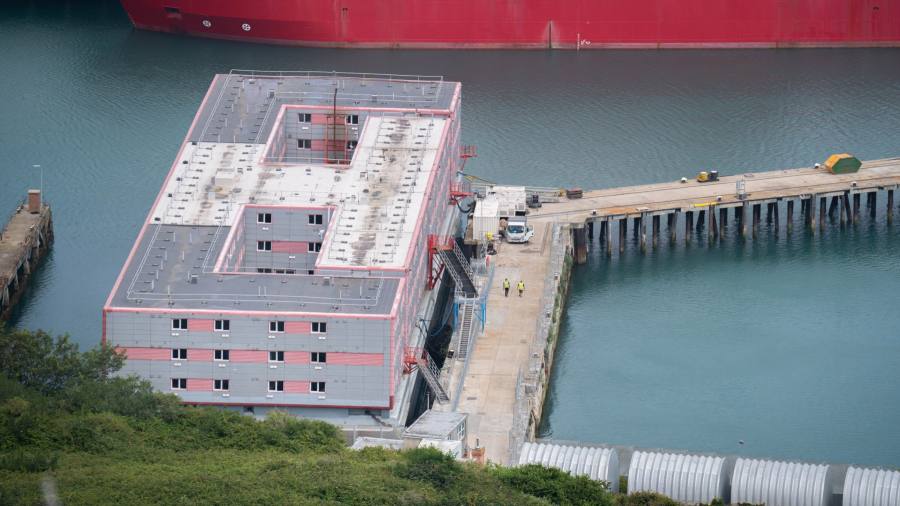
Receive free UK immigration updates
We’ll send you a myFT Daily Digest email rounding up the latest UK immigration news every morning.
The UK government has been forced to delay using a barge leased to house asylum seekers in southern England because of concerns over its compliance with fire and safety rules in the latest setback to plans to toughen up conditions for migrants.
The Home Office on Tuesday said the 47-year-old Bibby Stockholm was “undergoing final preparations to ensure it complies with all appropriate regulations before the arrival of the first asylum seekers in the coming weeks”. The delay comes after fire, health and safety and local authority inspections in recent days.
The vessel, which was due to come into operation on Tuesday, was towed to former naval docks in Portland, Dorset, last month, already well behind schedule, after spending weeks undergoing repairs and retrofitting in Cornwall.
It is supposed to accommodate more than 500 men as part of Home Office efforts to reduce the government’s daily £6mn bill to house asylum seekers in hotels and to meet Prime Minister Rishi Sunak’s pledge to voters to curb cross-Channel migration. Several dozen asylum seekers were originally set to arrive in Portland this week.
Transport minister Richard Holden told Sky News earlier on Tuesday that the barge was going through final checks to ensure it was “safe”, but that he was unable to “put a timeframe on” when it would be ready.
Dorset and Wiltshire fire and rescue services declined to give details of the shortcomings it had uncovered. But fire safety manager Graham Kewley said it had “provided advice and comment in relation to fire safety arrangements to both the Home Office and the vessel’s operators during our familiarisation and pre-occupation visits”.
He added that the fire service would exercise its “enforcement powers to address any significant areas of non-compliance where necessary”.
Campaigners claim they have identified potentially lethal problems with housing so many people on the barge. Originally built to accommodate 222 people, it has been retrofitted to pack more than twice that number into cabins fitted with bunk beds.
The problems cited include narrow corridors spread over three floors, insufficient numbers of fire escapes and muster stations, a lack of life jackets and the confined space at the docks where evacuees would be crammed in the event of a disaster.
Nicola David, of One Life to Live, a small refugee charity, said “only now” was the Home Office thinking about safety. She outlined some of the concerns in a briefing paper entitled “Floating Grenfell?”, named after the London tower block fire in 2017 that claimed 72 lives.
Charlie Flack, an elected member of Portland town council, said he had visited the Bibby Stockholm last week and that, while he had seen worse accommodation while serving in the Royal Navy, he would not want to be on board the barge in the event of an incident.
“There were a few signs saying fire exits but I didn’t see many fire escapes,” he said.